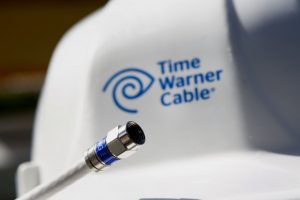 An ongoing investigation by New York Attorney General Eric Schneiderman into Internet providers’ advertised speeds found that Time Warner Cable (NYSE:TWC) customers in the state are not getting what they paid for. A terse letter to the company’s recent buyer, Charter Communications (NASDAQ:CHTR), outlined the claims and the data obtained by testing the service. Charter completed its acquisition of Time Warner Cable a few weeks ago, creating the nation’s second-largest cable company.
An ongoing investigation by New York Attorney General Eric Schneiderman into Internet providers’ advertised speeds found that Time Warner Cable (NYSE:TWC) customers in the state are not getting what they paid for. A terse letter to the company’s recent buyer, Charter Communications (NASDAQ:CHTR), outlined the claims and the data obtained by testing the service. Charter completed its acquisition of Time Warner Cable a few weeks ago, creating the nation’s second-largest cable company.
The attorney general’s office has been investigating internet speeds in the state since last year. Thousands of Time Warner Cable’s customers have since written in to the office saying they aren’t getting the download speeds they paid for. In December, the office launched a tool that allowed customers to log their speeds and submit them as part of that investigation. The Internet speed tests have shown that Time Warner Cable has repeatedly failed to provide the speeds it promises customers.
Previous testing by the Federal Communications Commission also found that some TWC customers aren’t receiving the speeds they pay for. The Measuring Broadband America report released by the FCC showed that nearly 10 percent of TWC customers got less than 80 percent of the advertised download speed during peak usage periods. About 15 percent were able to access between 80 and 95 percent of advertised speeds, and about 75 percent got more than 95 percent of advertised speeds.
In the letter, the AG’s office accused Time Warner Cable of advertising its Wi-Fi in ways that defy the technology’s technical capabilities. Time Warner Cable was also accused of selling some of its customers equipment that is unable to achieve the higher bandwidths the company has sold to them. New York has not publicly released its data that led to the claim, but has apparently shared the results with the cable company.
Wu wrote in the letter, “In short, what we have seen in our investigation so far suggests that Time Warner Cable has earned the miserable reputation it enjoys among consumers.” Wu is a former Columbia University law professor and ran for lieutenant governor of New York in 2014. Time Warner Cable has previously said that the tests designed to evaluate its network are flawed and don’t represent reality.
